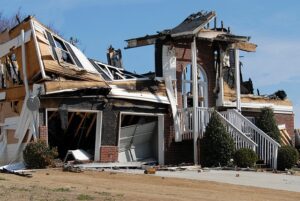Moving on After Selling Your Fire-Damaged Home: What’s Next?

Selling a fire-damaged home is a significant step on the road to recovery and a fresh start. After navigating the complexities of restoration and sale, it’s time to consider what’s next in your journey. There are some questions that you need to ask yourself as a homeowner, such as, do I need to sell my fire damaged house now? Do I have enough saved for a down payment on my next home? How can I rebuild my credit if it was affected by the fire? In this article, we’ll discuss the various options and considerations for moving on after selling your fire-damaged home, offering guidance and support in a friendly and informative tone.
Assess Your Emotional Recovery
 Before you make any decisions about what’s next, it’s important to assess your emotional recovery. A house fire can be a traumatic experience, and it’s crucial to prioritize your well-being. Take time to process your feelings, seek support if needed, and consider how you’re coping with the aftermath. It may be helpful to speak with a therapist or join a support group for individuals who have experienced similar situations.
Before you make any decisions about what’s next, it’s important to assess your emotional recovery. A house fire can be a traumatic experience, and it’s crucial to prioritize your well-being. Take time to process your feelings, seek support if needed, and consider how you’re coping with the aftermath. It may be helpful to speak with a therapist or join a support group for individuals who have experienced similar situations.
Explore Housing Options
Once you’ve sold your fire-damaged home, you’ll need to find a new place to live. This decision will depend on your unique circumstances and preferences. Consider options like:
- Buying a New Home: If financially viable, you may choose to purchase a new home that suits your current needs and preferences.
- Renting: Renting a property provides flexibility and can be a suitable option as you transition to a new living situation.
- Temporary Housing: In some cases, you may opt for temporary housing arrangements while you explore your long-term options.
- Staying With Family or Friends: Staying with loved ones can offer emotional support and temporary accommodations during your transition.
Financial Considerations
Evaluate your financial situation after selling your fire-damaged home. You may have received insurance payouts, proceeds from the sale, or other forms of financial support. It’s essential to manage your finances wisely and create a budget for your next steps. If your credit was affected by the fire, explore options for rebuilding it, such as obtaining a secured credit card or taking out a small loan and making timely payments. Additionally, consider seeking financial advice from a professional to help you make sound decisions and plan for the future
Seek Support and Counseling
 If you’re struggling with the emotional aftermath of the fire and sale, consider seeking support and counseling. Professionals can provide guidance and coping strategies to help you move forward. Additionally, it may be helpful to connect with others who have been through similar experiences. Look for support groups or online communities where you can share your story and receive encouragement from others.
If you’re struggling with the emotional aftermath of the fire and sale, consider seeking support and counseling. Professionals can provide guidance and coping strategies to help you move forward. Additionally, it may be helpful to connect with others who have been through similar experiences. Look for support groups or online communities where you can share your story and receive encouragement from others.
In Conclusion
Moving on after selling your fire-damaged home is a significant life transition. By assessing your emotional well-being, exploring housing options, managing your finances, and seeking support when necessary, you can navigate this process with resilience and hope. The sale of your fire-damaged home marks the end of one chapter and the beginning of a new one filled with opportunities and fresh beginnings.


